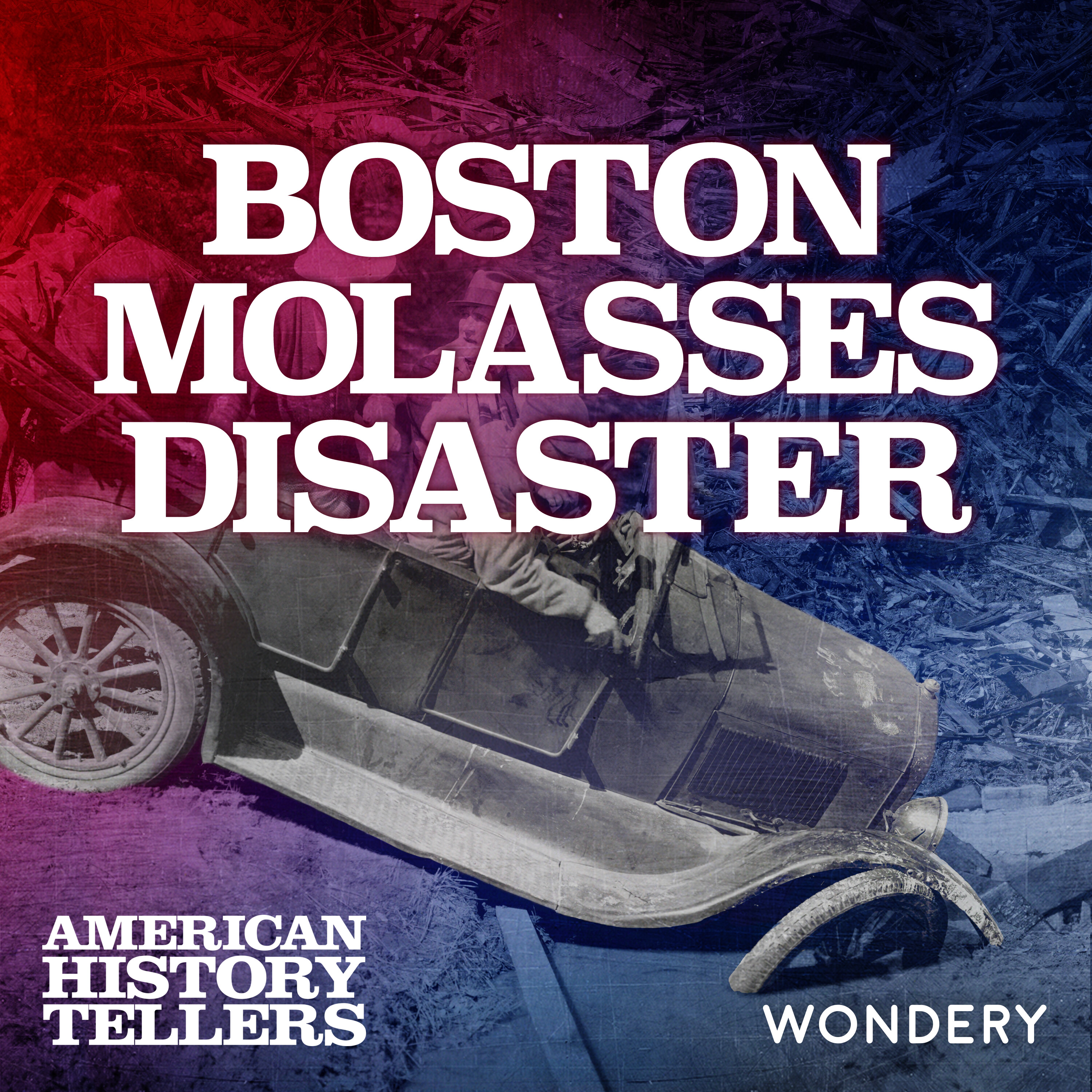
Encore: Boston Molasses Disaster | A Deadly Deluge | 1

American History Tellers
Deep Dive
What caused the Boston Molasses Disaster of 1919?
The disaster was caused by the collapse of a massive molasses storage tank due to poor construction and lack of proper safety inspections. The tank, which held over two million gallons of molasses, was built with inadequate steel plates and rushed to completion without thorough testing. Repeated leaks and warnings from workers were ignored, leading to the catastrophic failure.
How many people were killed in the Boston Molasses Disaster?
The disaster claimed 21 lives and injured approximately 150 people. Many survivors suffered lifelong injuries from the flood of molasses, which moved at 35 miles per hour and caused widespread destruction.
What were the long-term impacts of the Boston Molasses Disaster?
The disaster led to significant changes in building regulations, requiring all construction plans to be reviewed and signed by licensed engineers. It also set a precedent for corporate accountability, emphasizing the responsibility of companies to ensure the safety of the communities where they operate. The case became a landmark in legal history, highlighting the consequences of negligence.
Who was Arthur Jell, and what role did he play in the disaster?
Arthur Jell was the treasurer of United States Industrial Alcohol (USIA) and oversaw the construction of the molasses tank. Despite having no engineering background, he rushed the project to meet deadlines, ignored safety warnings, and skipped critical inspections. His negligence was a key factor in the tank's collapse.
What was the outcome of the legal case following the Boston Molasses Disaster?
The court found USIA negligent and awarded $628,000 in damages (approximately $11 million today) to victims and their families. However, the compensation was considered insufficient, and the case highlighted the need for stricter corporate accountability and building safety regulations.
Why was molasses such a critical commodity during World War I?
Molasses was a key ingredient in producing industrial alcohol, which was used to manufacture explosives for the Allied war effort. The high demand for munitions during World War I made molasses a lucrative and strategically important commodity, driving companies like USIA to expand storage capacity rapidly.
What were the immediate effects of the molasses flood on the North End neighborhood?
The flood destroyed buildings, crushed vehicles, and trapped people in their homes. The molasses wave, 25 feet high and moving at 35 miles per hour, suffocated animals and humans, swept children into the harbor, and caused extensive property damage. Rescue efforts were hampered by the sticky, hardening molasses.
How did the Boston Molasses Disaster impact building safety regulations?
The disaster prompted Boston to close loopholes in building codes, requiring all construction plans to be reviewed and approved by licensed engineers. This change became a national standard, ensuring greater oversight and safety in construction projects.
What role did Isaac Gonzales play in the events leading up to the disaster?
Isaac Gonzales, a laborer responsible for unloading molasses shipments, repeatedly warned Arthur Jell about the tank's structural issues, including leaks and strange noises. Despite his efforts to alert management, his concerns were ignored, and he eventually quit out of fear for his safety.
How did the Boston Molasses Disaster affect the local community?
The disaster devastated the North End, a densely populated working-class neighborhood. Families lost loved ones, homes were destroyed, and the community faced long-term trauma. The sweet smell of molasses lingered for years, serving as a haunting reminder of the tragedy.
Shownotes Transcript
On January 15, 1919 a giant storage tank holding more than two million gallons of molasses collapsed, sending a deadly wave crashing into the streets of Boston’s busy North End. The flood was over in minutes, but it left death and destruction in its wake. Victims and their families demanded justice, initiating a long, and contentious court case that raised questions about a possible anarchist bombing, faulty building plans, and a rush for profit in the World War I economy.
Order your copy of the new American History Tellers book, The Hidden History of the White House, for behind-the-scenes stories of some of the most dramatic events in American history—set right inside the house where it happened.
Be the first to know about Wondery’s newest podcasts, curated recommendations, and more! Sign up now at https://wondery.fm/wonderynewsletter
Listen to American History Tellers on the Wondery App or wherever you get your podcasts. Experience all episodes ad-free and be the first to binge the newest season. Unlock exclusive early access by joining Wondery+ in the Wondery App, Apple Podcasts or Spotify. Start your free trial today by visiting wondery.com/links/american-history-tellers/ now.
See Privacy Policy at https://art19.com/privacy) and California Privacy Notice at https://art19.com/privacy#do-not-sell-my-info).